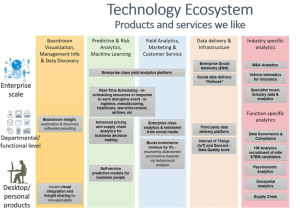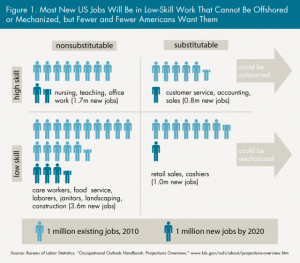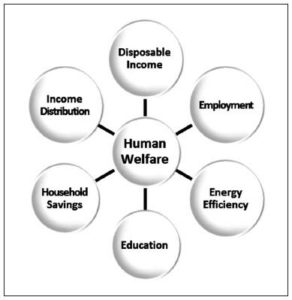A Research Agenda for the Digital Economy
By George Wright 2015
Rapid advances in technology are creating economic opportunities and challenges that are often fundamentally different from any our society has experienced before. We call for an ambitious program of groundbreaking research that will focus the world’s best minds on understanding and solving the new kinds of problems we face.
Some of the research priorities we would like to see studied include:
- Creating better measures for the digital economy and welfare, including supplements or replacements for metrics like GDP, productivity, unemployment, and inflation. We can’t manage what we don’t measure. Yet our current metrics miss much of the value of the digital economy.

- Identifying business models in which technology is a complement to – not a substitute for – labor and creating a taxonomy of their common characteristics.

- Analyzing changes in labor and capital demand by using new data sources like online job boards.
- Understanding the effects and implications of a basic income or a guaranteed annual income. There have been a few experiments in the US and around the world with variants on this concept, but no systematic analyses of its effects.

- Understanding the incentives and costs associated with expanding the earned income tax credit and other types of wage subsidies.
- Identifying skills that have the most job openings and which have an excess supply of labor.
- Summarizing the key improvements in AI and related technologies and mapping their implications onto job and skill demand as they diffuse throughout the economy.
- Identifying the policies that could encourage diffusion of technology and best practices across companies and countries
- Forecasting when and in what order we should expect various jobs to become automated, and what new kinds of work may be needed. Based on those conclusions, we can shape education policy and workforce training efforts to enable people to excel at jobs that can best be done by humans.

- Using techniques from big data to develop new indexes for innovation and welfare.
- Creating better methods for accurately measuring the health of an economy – by developing large scale surveys and experiments (e.g. conjoint analysis) to measure what people really want and value.

- Understanding the relative importance and roles of technology, globalization, tax policy, the minimum wage, labor organizing and other factors in the recent growth of inequality in the United States and other countries
- Developing new principles for personal data that protect privacy while encouraging effective data use for developing new products, reducing costs, matching needs to resources, and increasing overall welfare.
- Understanding the macroeconomic implications of digital currencies and crypto-currencies, include those that are highly decentralized. Assess how increasingly intelligent agents will affect the efficiency and dynamics of financial markets.


